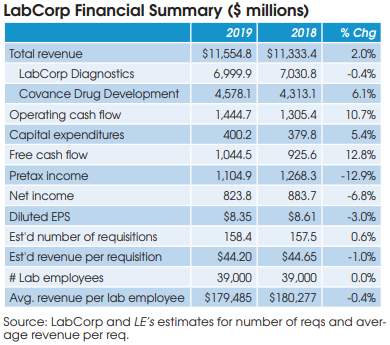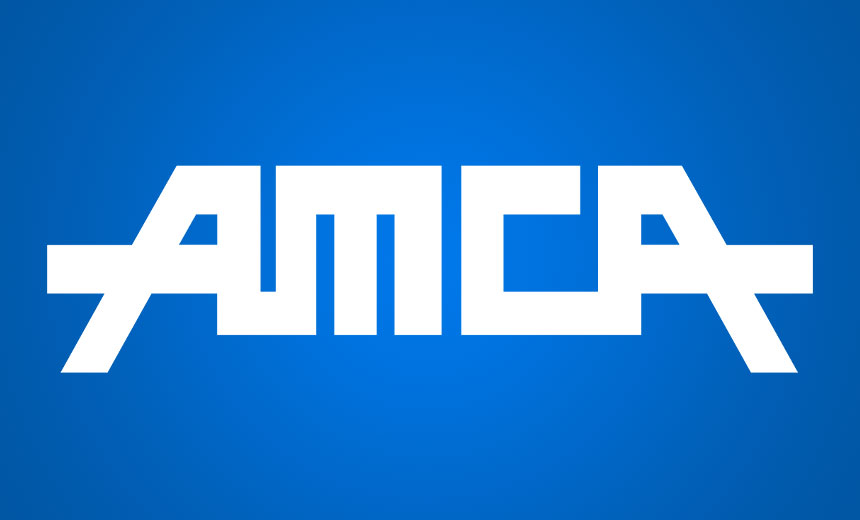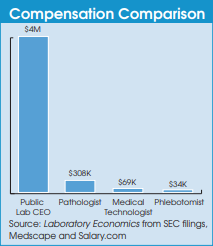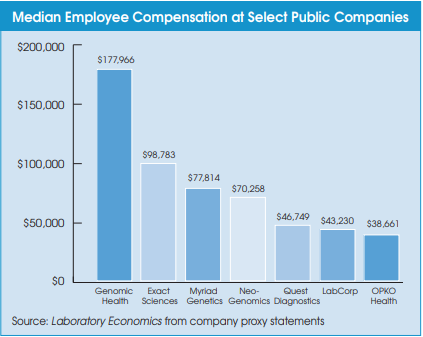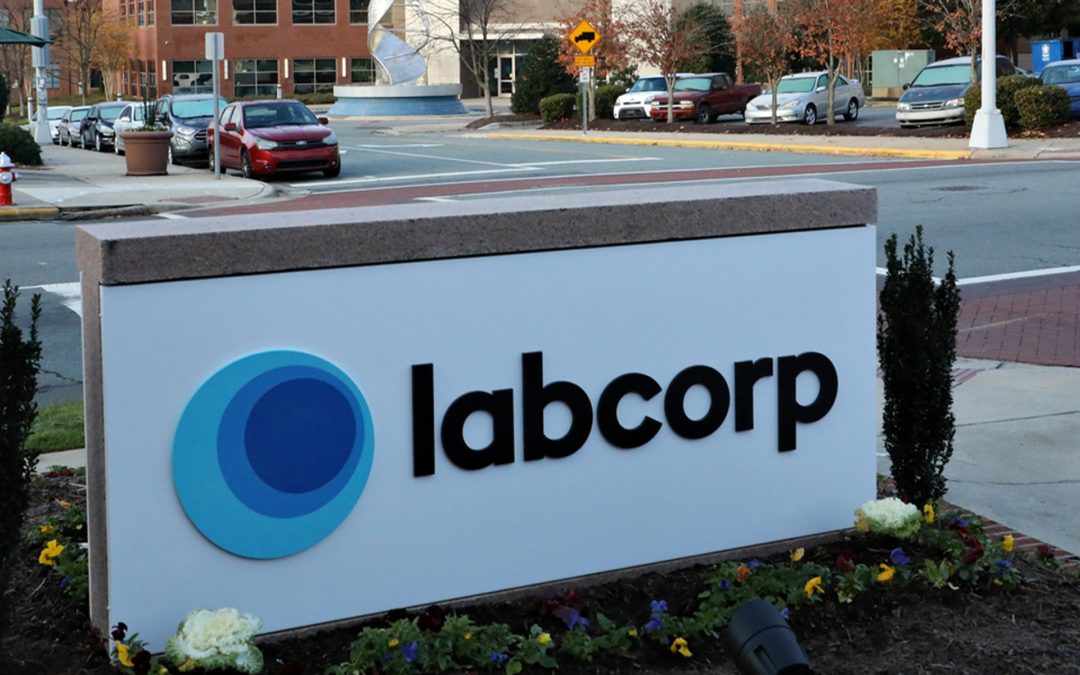
LabCorp Reports Full-Year 2019 Financial Results
LabCorp Reports Full-Year 2019 Financial Results
LabCorp (Burlington, NC) reported net income of $823.8 million for the full-year 2019, down from $883.7 million in 2018. LabCorp’s overall revenue increased by 2.0% to $11.6 billion in 2019.
Revenue from LabCorp’s lab testing business decreased by 0.4% to $7 billion in full-year 2019. This year LabCorp expects its lab testing business to increase its revenue by 0.5% to 2.5%. This guidance includes a -1.3% impact from PAMA and -0.9% from UnitedHealth’s nonrenewal of the BeaconLBS contract in Florida.LabCorp expects revenue from its Covance Drug Development division to grow by 7% to 9.5% in 2020.
On February 13, LabCorp held a conference call with analysts and investors. Here are some comments on a few key topics from CEO Adam Schechter.
Impact from PAMA
Schechter said that the PAMA rate cuts reduced the company’s lab testing revenue by approximately $100 million in 2019. He expects a similar $100 million revenue loss from PAMA this year and again in 2021.
UnitedHealth’s Preferred Laboratory Network (PLN)
“I don’t assume there’ll be a significant shift [to PLN labs] in 2020 because they’re rolling it out as we speak….If it works for United, I think that other organizations may see this as an opportunity to help them reduce their laboratory costs by moving over business to a lab like ours.”
Hospital Lab Acquisitions
“As I look at the hospital tuck-in acquisitions, I can tell you that our list is long. There are many discussions that we’re having around the country with both local and regional labs and hospitals… I believe over time it [hospital lab deals] will begin to accelerate, particularly as they feel the continued impact from PAMA.”
Direct to Consumer Genetic Testing
“We saw a significant decline in 2019 versus 2018. It’s now a very small amount of our total volume and of our total revenue and operating income.” Laboratory Economics notes that LabCorp has had a contract to provide genotyping services to 23andMe Inc. (Sunnyvale, CA) since 2008. After years of strong demand for
its ancestry and health testing services, 23andMe recently laid off 100 employees, or 14% of its workforce, citing a slowdown in consumer demand.
